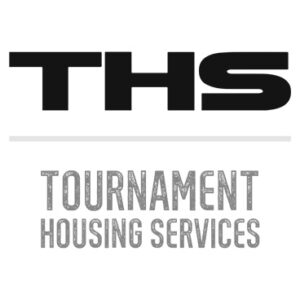NorCal Foundation Completes Inaugural Grant Cycle

Through its mission to fuel change at all levels of the game, NorCal Premier Soccer, via the NorCal Premier Soccer Foundation, recently created a grant funding program to help clubs from underprivileged areas garner better access to top-level equipment and training.
The first cycle of funding allocated $25,000 — in increments between $1,000 and $5,000 — to 18 different programs out of a total of 42 that applied.
“I don’t think the grant program is going to solve the world and fix everybody’s challenges everywhere, but I do think it’s one of the pathways that we want to pursue towards addressing some of the challenges in youth soccer today,” said NorCal Foundation director, Nick Lusson. “We’re keenly aware of the rising costs of youth soccer and programming and the challenges a lot of communities have in providing quality programming for kids. That’s one of the reasons we feel like having grants is important.”
“I think we feel, at a certain level, even a moral obligation to give back to areas in need, particularly to help grow the game in some of those spaces,” Lusson added. “It’s a national level topic about soccer access and some of the challenges that US Soccer has in reaching all communities, and equity issues, and that kind of thing. Our hope is that this is part of the effort, part of the mixture of solutions to make a little bit of a dent in that.”
To fund the grants, NorCal funnels money from apparel sales (t-shirts, sweatshirts, etc…) to the foundation, where 75 percent of the total profits go toward funding the foundation and its various programs.
The clubs receiving the funding can then use it to improve their facilities, buy equipment, or put the money towards any other helpful cause that their particular grant stipulates.
“[Our] grant will provide new goal posts for our club and its surrounding soccer community,” said Martin Valencia, the club administrator for $5,000 grant awardee, Pumas UNAM Fresno Soccer Academy. “Our club has been in existence since 2004. This is the first time that we as a club will have new field equipment. Up to this point, all of our field equipment have been handouts and/or bought used. In a community where very little is provided, your grant supports our club to continue its mission of serving the underrepresented through the beautiful game of soccer.”
According to Benjamin Ziemer, a founding member of NorCal and its current president, the foundation hopes to further the grant process by helping more fortunate clubs subsidize travel costs for disadvantaged athletes, resurface tennis courts for futsal, and reuse old equipment with teams in need.
“I had an epiphany,” Ziemer said. “We were speaking to a club that, contrary to our policy and definition of a club, was basically allowing teams from all over to play under their umbrella…and one of the ladies from one of these areas who we were going to not allow their teams to play in this club anymore, she basically said, ‘Hey, just this gas money to drive that 15 minutes every day, 30 minutes there and back, three or four days a week, they didn’t have that.’
“That’s when it really struck home, that we didn’t have an inkling of what these communities face.”
If Lusson, Ziemer and the NorCal Foundation have their way, even more underrepresented communities will become grant winners through the program. Lusson said that the goal of the foundation is to increase the amount of grants funded from that inaugural total of $25,000.
“100 percent, that’s our objective. We want to find more money,” he said. “We want to find it through what we’re already doing, with the apparel sales and getting money through that. We want to start putting together some of our own fundraising events.
“Really, I think what’s going to be the main sources is a combination of us being an intermediary grant source and us finding sponsors on a large level that we can then target on a smaller community level. We’re in the process of pursuing larger level private and government grant sources.”
The next cycle of funding from NorCal will open in June of 2017 and Lusson encourages all clubs needing help to apply, even if the challenge of writing a grant may seem daunting.
“A lot of the clubs that we work with are ideal candidates for some grant funding or other support, but when you talk to them about grant writing, that can be a very challenging process and also very difficult for them to write a grant, manage a grant, report back on one,” Lusson said. “So our hope is to serve that intermediary need where we can pursue outside financial resources, then help target that money to specific communities of need, and then have a multiplying effect on those resources by combining it with our Outreach Project club consulting work.”
Ziemer sees the grant cycle as the start of an overall community-driven effort to introduce more funds from a wide area into helpful programs.
“We want to have grant-writing assistance to help (teams) tap into funds…from major corporations, from the government, federal government, state government, local governments, anti-obesity (organizations), anti-gang (organizations) and pro education grants,” Ziemer said.
For more information, visit the NorCal Premier Soccer Foundation












